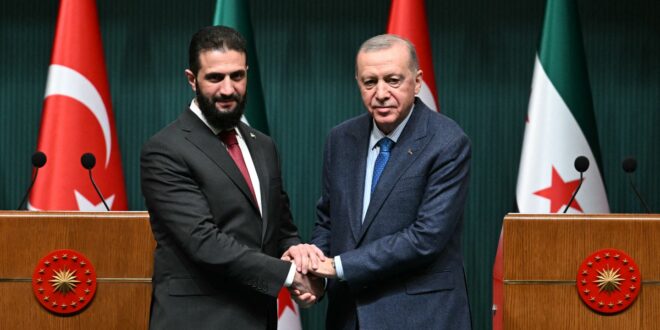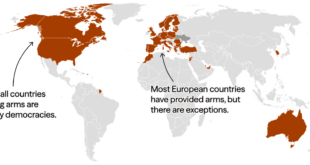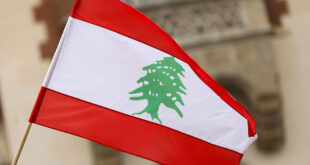Analysis: From revamping the economy to political, military, and bureaucratic capacity building, Turkey will have a key influence in shaping the new Syria.
On 4 February, the interim Syrian government’s president Ahmed al-Sharaa paid an important visit to Ankara and met with Turkish President Recep Tayyip Erdogan.
Sharaa flew directly to Turkey from Saudi Arabia, which was the first foreign country that he visited since the Hayat Tahrir al-Sham (HTS)-led coalition of rebel groups overthrew Bashar al-Assad’s government just over two months ago. While in Ankara, Sharaa and Erdogan addressed the future of Syrian-Turkish relations, mostly focusing on economic and security issues.
This visit underscored how much of a role Ankara will probably play in Syria’s future. Assad’s fall in December 2024 opened up opportunities for Turkey to emerge as the ‘big winner’ in Syria, filling voids left by the drastic decreases in Iranian and Russian influence.
It is difficult to overstate how much the Turkish leadership welcomes the emergence of an Ankara-friendly political leadership in Damascus, which stands to create close Syrian-Turkish alignment on geopolitical and security issues.
In recent weeks there has been growing talk of a defence pact between the two countries with Turkey’s military footprint in Syria expanding beyond the border areas to the central desert region where the Turks will reportedly set up two airbases. There is also discussion about Turkey helping to train the new Syrian military.
If Damascus and Ankara enter into a defence pact and Turkey sets up these airbases in central Syria, there could be significant implications for Turkish-Israeli relations and Israel’s military aggression against post-Assad Syria.
Even if it is premature to speak confidently about such a pact coming to fruition, it is safe to assume that Syrian-Turkish economic relations will expand and reach new heights. Turkish construction, transport, and manufacturing companies eye huge opportunities in post-conflict Syria. There are expectations that bilateral trade will triple in this upcoming period.
Foreign relations of the ‘New Syria’
Since Assad’s ouster, the new government in Damascus has been putting much energy into securing international legitimacy. High-profile foreign statesmen coming to Syria, as well as Sharaa and Syrian Foreign Minister Asaad al-Shibani visiting Gulf Cooperation Council (GCC) members, Turkey, Italy, and Switzerland have been important to such diplomatic efforts.
“Sharaa has been building an international presence and visibility step by step,” explained Aron Lund, a fellow at Century International and Middle East analyst at the Swedish Defence Research Agency (FOI), in an interview with The New Arab.
While engaging with a number of regional states, the new Syrian leadership has been careful about maintaining some balance to minimise any risk of tension between Damascus and certain governments in the Middle East.
“The new Syrian government is most closely aligned with Turkey and Qatar, but it has taken care to also reach out to other Arab powers, such as Saudi Arabia and the United Arab Emirates, to avoid unnecessary friction. His first meetings with foreign heads of state reflect that balancing approach. In quick succession, he received the Qatari emir on a state visit to Syria, then went on a state visit to Saudi Arabia, and then to Turkey,” noted Lund.
Pointing to “clever etiquette” on the part of the new leadership in Damascus, Lund explained how it was necessary for Sharaa to pay an official visit to an Arab state before Turkey. While Egypt was out of the question for Sharaa’s first visit, Saudi Arabia was a logical choice, especially after hosting Qatar’s Emir Sheikh Tamim bin Hamad al-Thani, who late last month became the first foreign head of state to visit Damascus following Assad’s fall.
“After the Saudi trip, finally, it was time for the big reception in Ankara,” he told TNA.
“It is understandable and pragmatic that the first visit was not to Turkey in order not to offend the Arab elites. Moreover, Sharaa also needs Gulf capital,” explained Dr Mustafa Caner, an assistant professor at Sakarya University Middle East Institute (ORMER), in a TNA interview.
“However, Turkey is the most important political and security contributor to the Syria of the Sharaa era. The country that opened the door to the 8 December revolution shows that not only money, but also political, military, and bureaucratic capacity building will play a role in shaping the future of Syria. Turkey is the only country that can make this happen. Sharaa’s visit is an expression of this reality,” he added.
Experts see Sharaa’s visit to Turkey as opening more doors to the leadership in other important and influential countries accepting and recognising him as Syria’s legitimate president.
“We’re seeing that now France is inviting Sharaa to visit Paris, which I think again will build more on this momentum that started with Qatar, followed by the visit to Saudi and now with the visit to Turkey. It is clearly opening more doors for Sharaa to gain international recognition,” said Qutaiba Idlbi, a senior fellow with the Atlantic Council’s Rafik Hariri Center and Middle East Programs, in a TNA interview.
Over the past two months, it has become apparent that Syria’s post-Assad government will depend on Turkey in many ways from securing greater international legitimacy to the redevelopment of the Syrian economy and national defence.
The new Syrian president’s visit to Ankara “signals not only Turkey’s significant role in supporting the opposition-led offensive late last year but also the new transitional government’s prioritisation of this new relationship with Turkey,” Caroline Rose, director at the New Lines Institute for Strategy and Policy, told TNA.
When it comes to Syria’s reconstruction, Turkish firms will play a major role while officials in Ankara will join their counterparts in Gulf Arab capitals in trying to persuade the West that the time has come for lifting all economic sanctions on Syria.
Ankara understands that the challenges in Syria are too much for any one country, even Turkey, to take on alone. The Turkish leadership recognises the importance of working with other states as Ankara seeks to advance its interests in promoting stability in Syria while working to strengthen its clout in the country.
“Turkey’s interests are broadly aligned with those of the Damascus government, but it can’t provide all the things Syria needs. Many cards remain in the hands of Gulf Arab or Western nations, including sanctions relief, economic support, and the potential removal of Sharaa and his followers from terrorism lists,” Lund told TNA.
The Islamic State and YPG challenges
When Sharaa was meeting Erdogan in Ankara, the two leaders discussed security challenges in the “New Syria” and their shared desire to cooperate in their common struggles. Erdogan stressed that Ankara is prepared to stand by Damascus when it comes to fighting the Islamic State (IS) and the northeast Syria-based Kurdistan Workers’ Party (PKK)-linked People’s Protection Unit (YPG).
“I would like to express our satisfaction for the strong commitment my brother Ahmed al-Sharaa has shown in the fight against terrorism,” said Erdogan while next to Sharaa at a press conference in Ankara. “I told al-Sharaa we are ready to provide the necessary support to Syria in the fight against all kinds of terrorism, whether it be [ISIS] or the PKK,” added the Turkish president.
Backed by the United States, the YPG is the dominant organisation under the Syrian Democratic Forces (SDF) umbrella. The YPG remains heavily armed and outside the control of Syria’s central government, which Sharaa and other high-ranking officials in Damascus stress is unacceptable.
The HTS-led government has engaged the YPG in talks about the Kurdish-majority group’s integration into the Syrian state and Sharaa has emphasised that his preference is to settle issues with the YPG without resorting to force. Nonetheless, the talks between the YPG and the new Damascus government have yet to lead to an agreement and if this dialogue proves fruitless, Sharaa’s government will be in conflict with the Washington-sponsored force in northeast Syria.
According to Rose, Sharaa’s visit to Ankara was a “warning call” amid prolonged talks between Damascus and the SDF/YPG without an agreement being reached. “Both Ayn Issa [the administrative centre in northeastern Syria] and Damascus have struggled to reach consensus on security integration and reform, so Sharaa’s warm meeting with the SDF’s adversary, Turkey, could be interpreted as a way to add pressure on the SDF to cede to its requests,” she told TNA.
Meanwhile, Turkey is seeking to persuade the Trump administration that Ankara, the new government in Damascus, and other regional actors can take on the security threat posed by IS in Syria, meaning that the US should not see the YPG as a necessary partner in the fight against IS.
While Sharaa’s government and Ankara might not necessarily agree fully on every YPG-related issue, there seems to be broad agreement between the two governments about the need to bring all of northeast Syria into Damascus’s control and never allow any Kurdish separatist statelet to form in the country.
“I think there’s broad agreement between Ankara and Damascus that the SDF should be disarmed or disposed of in some other fashion. They may differ on the details, and I suspect that Sharaa’s government sees the SDF issue as a potential point of leverage to win favours from Turkey. But overall, I think they’re on the same page,” Lund told TNA.
Other analysts also assess that there is quite a bit of agreement between the Syrian and Turkish governments on how to deal with the SDF. “I think the way Damascus has been managing the situation seems to be satisfying for Ankara. I think this is evident in the pause in the military operation that Turkey was pushing for from west of the Euphrates. I think Damascus’s approach has allowed Ankara to take a step back and show that they are willing to give diplomacy a chance,” holds Idlbi.
“There has been no indication at all showing any divergence between Damascus and Ankara over how to approach the SDF,” he told TNA.
Dr Caner holds that while Ankara and Damascus “appear to share a fundamental understanding on this issue”, it could be the case that the two governments differ when it comes to priorities and approaches.
“For Turkey, the eradication of the PKK is a primary and urgent concern, as it is directly linked to its national security. In contrast, the Syrian administration, led by Sharaa, faces a broader set of challenges, including the impact of international sanctions,” he told TNA.
Noting that the YPG receives protection from Washington, Dr Caner believes that Sharaa’s government will probably approach the armed group with a more “cautious and calculated” approach, although a delay in any resolution of this issue risks creating tensions between Damascus and Ankara.
He explained that as much as the new Syrian government sees the YPG as a threat to its authority as well as Syria’s territorial integrity, the Kurdish-majority organisation’s relationship with Western states, chiefly the US, could “initially lead to hesitation [on the part of Damascus] in taking decisive action” against the YPG.
Turkey’s challenges in Syria
With Syria and Turkey sharing a 910-kilometer border, Ankara has much at stake in terms of its southern neighbour’s future. It is difficult to exaggerate the extent to which Turkey sees a pro-Ankara political order in Damascus as boding positively for Turkish interests.
“Syria’s political and strategic tensions with Turkey date back nearly a century, beginning with the establishment of the French mandate. These tensions have persisted over time, with key issues such as terrorism and governing the water resources remaining at the forefront of bilateral disputes,” explained Dr Caner.
“However, for the first time, Turkey is engaging with a Syrian administration that does not adopt a categorically adversarial stance toward it. This presents a historic opportunity for both countries to move beyond a century-old pattern of conflict and establish a new framework for political relations.”
Nonetheless, Turkey’s leadership must contend with serious challenges in Syria that could ultimately harm Ankara’s interests and vision for the post-Assad future. Put simply, there are many dynamics in play that raise valid concerns about instability in Syria that could easily spill into Turkey.
Officials in Ankara will want to see the HTS-led government cement its control over all of Syria and the country’s economy regrow. The potential for power vacuums to emerge unsettles Turkish policymakers who want Syria to be a strong state with an Ankara-oriented leadership.
“Turkey’s main problem in Syria is that Sharaa’s government remains weak and sits atop a structurally unsound, near-bankrupt state. Over the coming months, there needs to be significant progress on Syria’s economic recovery and on the demobilisation or reincorporation of rebel factions. Those issues are linked,” explained Lund.
“You can’t buy off rebel rivals or hire them in a new army unless you have the resources to do so. Frustration with the new ruling elite – which is nearly all Sunni Arab, ideologically narrow, and very Idlib-centric – will likely grow in many parts of Syria if economic conditions continue to deteriorate. In short, there are major question marks about the longer-term stability and viability of Sharaa’s government.”
While Turkey likes having an “allied regime south of the border,” it fears the risk of state failure, he added.
The leadership in Ankara will probably face some problems regarding the return of Syrian refugees from Turkey back to their homes in Syria. There is much pressure on Erdogan’s government to see to it that this process moves at a fast tempo, but the speed will likely be slower than perhaps many Turks expect.
“Refugee return is a long-term problem, which involves creating the material and economic conditions for people to rebuild the livelihoods and homes they lost in Syria. Neither Damascus nor Ankara can easily accomplish that on their own. It will require a very serious push for more aid, sanctions relief, and investments from other countries, including the Gulf Arabs, the Europeans, and the Americans. Even if those pieces fall into place, it will be a slow-moving process,” Lund told TNA.
“So in half a year or so, I think it’s very probable that Erdogan will be taking flak from the opposition because few Syrians will have returned. The Turkish opposition will portray that as a failure of Erdogan’s strategy – he won the war, his allies are now in charge, and still the refugees won’t go back. If Erdogan reacts by pushing Sharaa to take in more returnees or if Turkish authorities start putting pressure on the diaspora, it could create serious friction in the new Syrian-Turkish relationship,” he added.
When it comes to Syria’s future a top concern for officials in Ankara relates to what could unfold in the country if the West’s sanctions remain in place.
“I think Turkey realises that without a meaningful removal or easing of sanctions that Syria is going to be an economic vacuum that would definitely impact Turkey,” as Idlbi noted. “There is definitely a worry in Ankara regarding whether the economy of Syria will be revived or not.”
Ultimately, the potential for more Syrian refugees to come into Turkey could not be ruled out under certain scenarios.
The bigger picture
In terms of the wider geopolitical context, questions about the future of Russia’s role in Syria are important to Turkey. Much is up in the air about Moscow’s position in post-Assad Syria. Nonetheless, Syrian Defence Minister Murhaf Abu Qasra recently stated that Russia’s stance toward the post-Assad government in Damascus had “improved significantly” and that Syria is now open to permitting the Russians to keep their military bases in the country.
Nonetheless, if Moscow and Damascus do not reach an understanding and the Russian military leaves Syria, Ankara will not want an abrupt Russian exit from the country. Idlbi told TNA that Turkish officials “want to see more a soft exit that is less humiliating for Russia…because they don’t want to have to deal with an increase of Russian influence in other areas like Libya. They want to make sure the management of the Russian exit is done well and in close coordination with Damascus”.
In any event, the fall of Assad’s regime marked a major blow to Russia and Iran. The influence of those two countries in Syria has drastically fallen, creating a void that Turkey seems to be doing much to fill. Having spent years supporting rebel groups fighting to topple the Assad government, Ankara now sees itself on the right side of history in Syria.
Despite all the challenges that Turkey faces in post-Assad Syria, the leadership in Ankara is confident about what will come next in its relationship with Damascus.
“Turkey possesses the most advanced political, military, and bureaucratic capacity in the region. Unlike many other states, it does not face deep-seated conflicts with the international community or Western institutions, while also maintaining open channels with Russia,” Dr Caner told TNA.
“Given these strengths, Turkey’s strategic role is indispensable for the new Syrian administration. Moreover, a stable, prosperous, and territorially intact Syria would directly contribute to Turkey’s own stability and economic well-being. This dynamic makes the relationship between the two countries a mutually beneficial, win-win partnership,” he concluded.
 Eurasia Press & News
Eurasia Press & News


